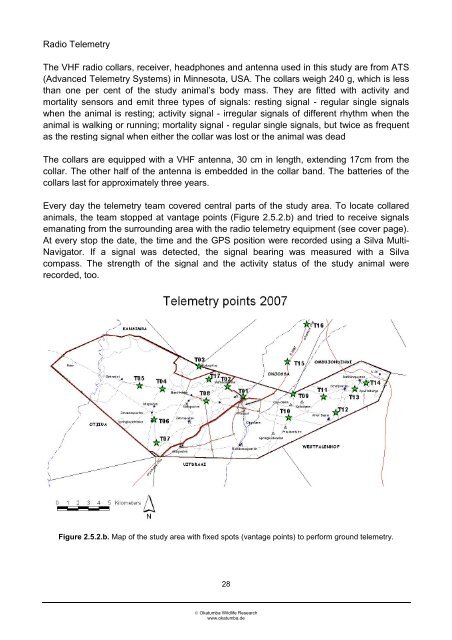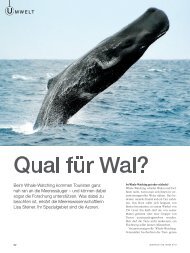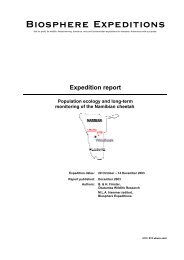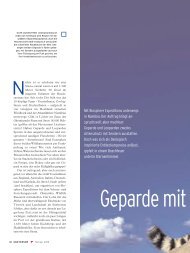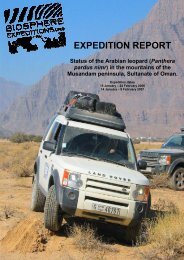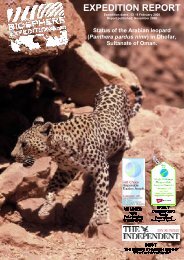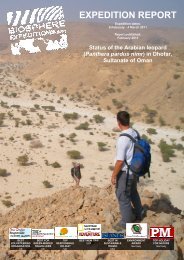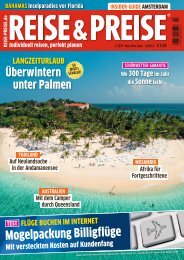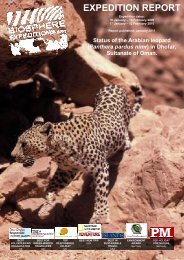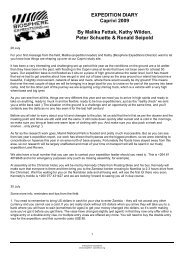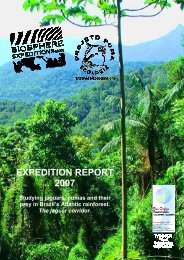EXPEDITION REPORT - Biosphere Expeditions
EXPEDITION REPORT - Biosphere Expeditions
EXPEDITION REPORT - Biosphere Expeditions
You also want an ePaper? Increase the reach of your titles
YUMPU automatically turns print PDFs into web optimized ePapers that Google loves.
Radio Telemetry<br />
The VHF radio collars, receiver, headphones and antenna used in this study are from ATS<br />
(Advanced Telemetry Systems) in Minnesota, USA. The collars weigh 240 g, which is less<br />
than one per cent of the study animal’s body mass. They are fitted with activity and<br />
mortality sensors and emit three types of signals: resting signal - regular single signals<br />
when the animal is resting; activity signal - irregular signals of different rhythm when the<br />
animal is walking or running; mortality signal - regular single signals, but twice as frequent<br />
as the resting signal when either the collar was lost or the animal was dead<br />
The collars are equipped with a VHF antenna, 30 cm in length, extending 17cm from the<br />
collar. The other half of the antenna is embedded in the collar band. The batteries of the<br />
collars last for approximately three years.<br />
Every day the telemetry team covered central parts of the study area. To locate collared<br />
animals, the team stopped at vantage points (Figure 2.5.2.b) and tried to receive signals<br />
emanating from the surrounding area with the radio telemetry equipment (see cover page).<br />
At every stop the date, the time and the GPS position were recorded using a Silva Multi-<br />
Navigator. If a signal was detected, the signal bearing was measured with a Silva<br />
compass. The strength of the signal and the activity status of the study animal were<br />
recorded, too.<br />
Figure 2.5.2.b. Map of the study area with fixed spots (vantage points) to perform ground telemetry.<br />
28<br />
� Okatumba Wildlife Research<br />
www.okatumba.de


